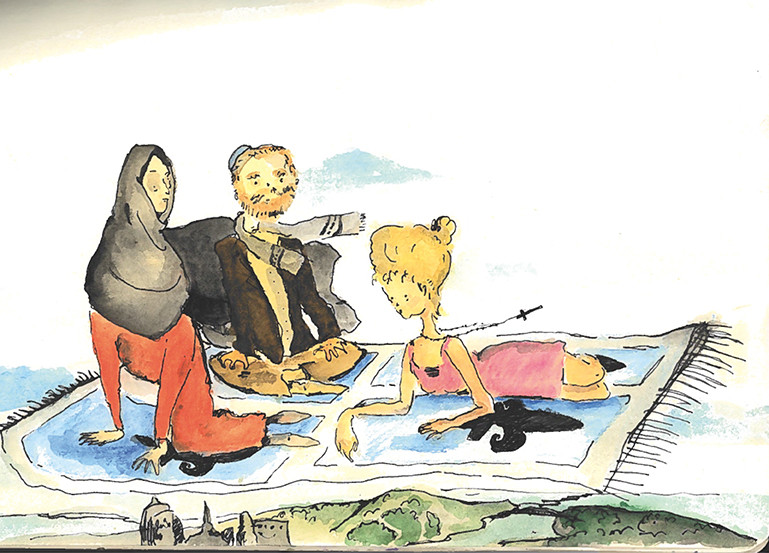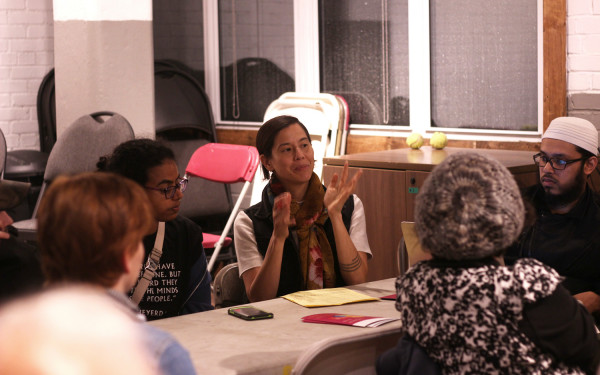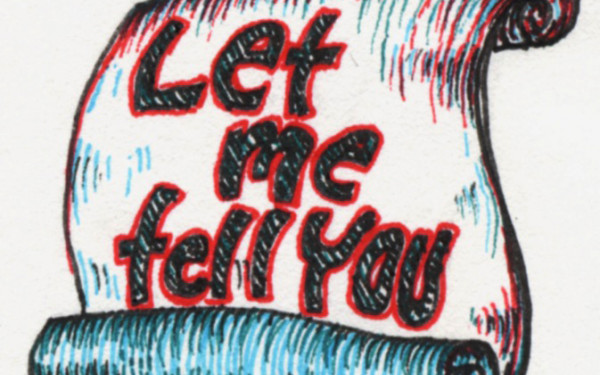Quebec’s Ongoing Struggle With Secularism Laws
Everything You Need to Know About the Law Formerly Known as Bill 21
Amrit Kaur was celebrating her graduation from the University of Ottawa’s education program on June 16.
Having come to Quebec from England at four years old, Kaur was excited about being able to join the workforce.
But, when she got home that evening and turned on the news, her dreams were dashed—Quebec’s controversial Bill 21 had been passed into law.
The secularism law formerly known as Bill 21 bars people wearing religious symbols from working in education and the public sector—like courts of law or public transit—in order to “keep the State secular.”
Kaur, a practicing Sikh who wears a turban, has accepted a teaching position in British Columbia, where she will be able to work without compromising this part of her identity.
“I was celebrating in the morning [of my graduation day] and when I got home it broke my heart,” she said.
“Just because I’m an observant Sikh and wear a turban I need to leave my province.”
But, for many, this law came as no surprise.
After all, Quebec’s premier Francois Legault did campaign on the promise of secularism—along with immigration reforms, tightening laws on marijuana consumption, and a boost in public transit and infrastructure budgets.
As soon as discussions around Bill 21 began, it received strong backlash on the basis that it targets religious and ethnic minorities—especially women wearing the hijab.
Protesters took to the streets for months, denouncing the secularism law as xenophobic and discriminatory.
The law also invoked the notwithstanding clause, effectively overriding sections of both the Canadian and Quebec Charter of Rights and Freedoms upholding religious freedom and equality rights. It also serves to shield it from legal scrutiny.
The secularism law formerly known as Bill 21 bars people wearing religious symbols from working in education and the public sector—like courts of law or public transit—in order to “keep the State secular.”
Further, in its infancy, the bill didn’t precise what was considered a religious symbol and what measures would be put in place to enforce the law.
Now, religious symbols are defined as “A religious symbol, within the meaning of this section, is any object, including clothing, a symbol, jewellery, an adornment, an accessory or headwear, that is worn in connection with a religious conviction or belief; or is reasonably considered as referring to a religious affiliation.”
Others were concerned by how this law would be enforced.
At first, Public Security Minister Geneviève Guilbault said the police would enforce the law, but the CAQ quickly backtracked, and a last minute change to the bill gave the government the power to enforce the ban by imposing sanctions on institutions that don’t comply.
Along with the secularism law, the CAQ promised to reduce immigration levels by nearly 20 per cent, to “help better integrate immigrants to the [job] market, to the francophone majority and to our common values.”
Both these law projects were taken on by Minister for Immigration, Diversity and Inclusiveness Simon Jolin-Barrette. The provincial government stressed the need to pass the bill by June 16—when the National Assembly goes into recess—garnering criticism from the opposition, saying he spread himself too thin.
Jolin-Barrette was accused of not being available to answer questions on immigration reforms while focusing on the religious symbol ban, also deemed poorly developed by some members of the opposition and protesters.
He responded by saying, “There is only so much one person can do” and that, “You cannot criticize the fact that I’m working multiple hours on two important bills of the government.”
That answer was not good enough for several Members of the National Assembly as they felt two very controversial bills that would alter the lives of minorities in Quebec would be passed too hastily and without enough consultation.
“I cannot imagine being in a commission on immigration and not having the minister there. It’s impossible to work in a democracy,” said Liberal immigration critic Dominique Anglade back in early June.
The National Assembly was also hit with a flurry of criticism saying they didn’t let those who would be directly affected by the ban to share their concerns.
Protesters claimed that despite their efforts to be heard, they were shut out.
“I would say that with respect to any law it’s really important for the public to be able to participate in the democratic process, and that includes their ability to know what’s happening, to have a say in it, to make their voices heard in a variety of measures,” said Noa Mendelsohn Aviv, the director of the equality programme at Canadian Civil Liberties Association—one of the groups challenging the law in court
“This is all the more important when fundamental rights and freedoms are at stake and especially where a government has taken the exceptional measure of invoking the notwithstanding clause.”
As a pressure tactic, Montreal’s Mayor Valerie Plante took a stance declaring the city of Montreal was strongly against the law project—though she said the city would still respect it—and the town of Hampstead said they would refuse to enforce it.

Co-author of the Bouchard-Taylor Commission on reasonable accommodation Charles Taylor also said the CAQ’s laws went too far.
Outside of Quebec, Canada’s Prime Minister Justin Trudeau also condemned the law proposal, and United Nations human rights experts expressed concern.
As the bill inched closer to becoming law, a rise in hateful acts against Muslim women was also recorded, from being spat on, to people trying to rip off their hijabs in public.
In May, a man was arrested following an altercation outside a mosque.
When confronted about this, Legault and Jolin-Barrette denied any causation between Bill 21 and the rise in hate crimes, reiterating the law does not promote violence or discrimination.
Legault went as far as saying, “Islamophobia doesn’t exist in Quebec,” and he didn’t believe the stories of Muslim women, even with 2017’s mosque shooting in Quebec City still fresh in the province’s memory.
After the bill was passed into law, an Arab man was stabbed in a convenience store, and a woman and her daughter were verbally harassed on the street for speaking Arabic.
But, Legault argues this secularism law will help avoid extremism.
“If you don’t do so, we saw madame Le Pen in France, we don’t want this kind of extremism so I think if we want to avoid extremism we have to put in rules,” he said.
Kaur said this rhetoric should be sounding alarm bells.
“I think that’s very scary if someone wants to toss a bone to someone who is racist or a white supremacist,” she said. “You don’t toss a bone to anyone who is promoting hate, you’re supposed to nip that.”
She stressed that by interacting with people who are different from us we become more cultured and cognizant of how people are different, and taking that away will only prevent people from asking questions and understanding that those wearing religious symbols are normal people, too.
“If you completely take away those things, let’s say someone from Quebec goes somewhere very multicultural like Toronto, they’re gonna be in such shock,” she said. “What you’re doing is creating a society of close-minded people. And people who are racist need to be told that their feelings aren’t right, you shouldn’t be pandering toward them.”
Concordia translation student Jassmine Yassine argued even if she were to remove her hijab, she could still be targeted by racists and xenophobes because of the colour of her skin and the way she speaks.
The Legitimacy of the Secularism Law
Bill 21 passed into law with the use of closure, effectively ending all discussions, even though critics accused the government of not hearing the voices of those who would be affected by this law. Others were worried aspects of the law were still too vague.
“The vast majority of Quebecers want this ban,” Legault said repeatedly. “Even today I heard some liberals say there needs to be more nationalists and I think it’s time we listen to Quebecers.”
But, Université de Montreal law professor Frédéric Bérard challenged that idea: the CAQ won with 38 per cent of the popular vote—though a La Presse poll in June showed that 46 per cent of Quebecers would vote for them now.
“It seems like it became quite a trend to say to the majority ‘we will be suspending the rights and freedoms of minorities if this is what you like,’” he said “They’re talking about majority […] but only 38 per cent of people voted for [them] so I’m not sure [they’re] representing the majority per se.”
“This is not the Quebec I know, I don’t think these are Quebecers’ values. It’s like telling someone you’re not good enough because of how you look. It’s telling someone I don’t care about your experiences or the studies you’ve done, if you don’t look like the others you’re not accepted.” — Jasmine Yassine
Bérard also argues Quebec’s secular law is actually going against the very idea it claims to promote.
According to law, “The laicity of the State is based on the following principles:
(1) the separation of State and religions;
(2) the religious neutrality of the State;
(3) the equality of all citizens; and
(4) freedom of conscience and freedom of religion”
“Neutrality in terms of religion was developed by the Supreme Court of Canada and it says that the State cannot discriminate against or favour one religion,” said Bérard.
“And this is precisely what they’re doing right now, they’re discriminating against Muslims and Sikhs, mainly, but they leave the Christian symbols all over the place. They’re using a concept they don’t even understand.”
Mendelsohn Aviv agrees.
“Secularism means there has to be room for different people to have different views in society and the state has to be neutral so people can have different religions or no religion,” she said.
“What this is doing is forcing people to be non-religious if they want to work in the public service.”
Kaur believes this law is used to justify the actions of the Quiet Revolution, but is doing the same thing Quebec tried to get rid of in the Quiet Revolution: bodies having too much power over the average citizen.
She added the use of a grandfather clause allowing those currently employed to keep their religious symbols while barring new hires was confusing if the goal of the law is to eradicate all religious symbols from the public sector.
Bérard questions the legitimacy of the law, saying it’s “obvious” it infringes on civil rights and liberties.
“You don’t use the notwithstanding clause if you’re of the opinion that it respects the constitution,” he said.
The notwithstanding clause is constitutional but, Bérard said, it’s not because you can use it that it is legitimate to—which is why it’s so rare that parliament invokes the clause.
He highlights the fact that this is the first time since 1975, the charter was amended the Quebec without consensus; without unanimity in the National Assembly.
“I think that says a lot about the legitimacy of this process,” he said.
Berard also criticized the use of closure, but said it was part of their strategy all along.
The National Assembly only went through the amendments on the last weekend it was open before recess.
“They passed the vote at night, everyone was exhausted, all MNAs wanted to go home for the holidays so they used the particular timing to propose amendments at the last minute. It was clear from the beginning it would end like this,” said Bérard.
The Impact on Montrealers
The passing of Bill 21 into law has left many students and recent graduates in the dark on what their futures might look like.
In May, Concordia University’s Senate adopted a motion opposing the law proposal, saying it may limit access to jobs in some fields for graduates and prevent students from completing their education in certain programs at the university.
Concordia spokesperson Vannina Maestracci said Concordia represents a broad range of nationalities, cultures and faiths, and is profoundly dedicated to freedom of expression, freedom of conscience, and access to higher education.
But, as Concordia is included in the institutions covered by the law, persons holding certain positions of authority will have to comply—none of which hold office at the university, said Maestracci.
Concordia education student Ikram El Mashoubi—who has been vocal in her opposition to Bill 21 since April—doesn’t know what’s in store for her next year of studies.
Because the aftermath and regulations of the law are still unclear, she doesn’t know if it will impede on the logistics of her placement for her final internship.
But, she feels it will “definitely affect the environment and it might create an unsafe environment for [her] to learn and grow as a student teacher.”
Yassine found the government’s argument that those wearing religious symbols can still work so long as they take them off while on the clock incredibly insulting.
“It’s definitely not that easy,” she said regarding removing her hijab.
“We’re talking about religious symbols and cultural practices. These are not to be taken lightly and made assumptions about. A religious symbol is similar to a vow and you don’t break a vow whenever you please.”
Born and raised in Montreal, Yassine had never felt there was any separation between immigrants and Quebecers.
She describes herself as the type of person who can be friends with anyone, and she refuses to believe the majority of Quebecers support this law.
“We live in a free country where everyone can wear what they want and be who they are,” she said.
“When they passed Bill 21, I was shocked. This is not the Quebec I know, I don’t think these are Quebecers’ values. It’s like telling someone you’re not good enough because of how you look. It’s telling someone I don’t care about your experiences or the studies you’ve done, if you don’t look like the others you’re not accepted.”
Legault’s rallying cry has become “this is how we live in Quebec,” while defending the implementation of this law and claiming it would help immigrants integrate.
“Why do I need to remove my hijab to feel integrated? I’ve lived here my whole life,” said Yassine. “I felt like I was part of this society, this community. By imposing those laws you’re telling me I’m not good enough.”
Kaur argues not only post-secondary students and recent graduates will be affected, but also high school kids.
“If you’ve lived in Quebec your whole life, you want to do something for the place you’ve lived and if you’re banned from doing public service jobs just because of your religious convictions you feel like a second-class citizen,” she said.
But, the women aren’t letting this bring them down.
“I’m not going to let this bill dictate my future trajectories because I want to stay in Montreal, that’s for sure,” said El Mashoubi. “Upon graduation, I will apply for a master’s and see from there. I’m taking it one step at a time.”

_900_600_90.jpg)





